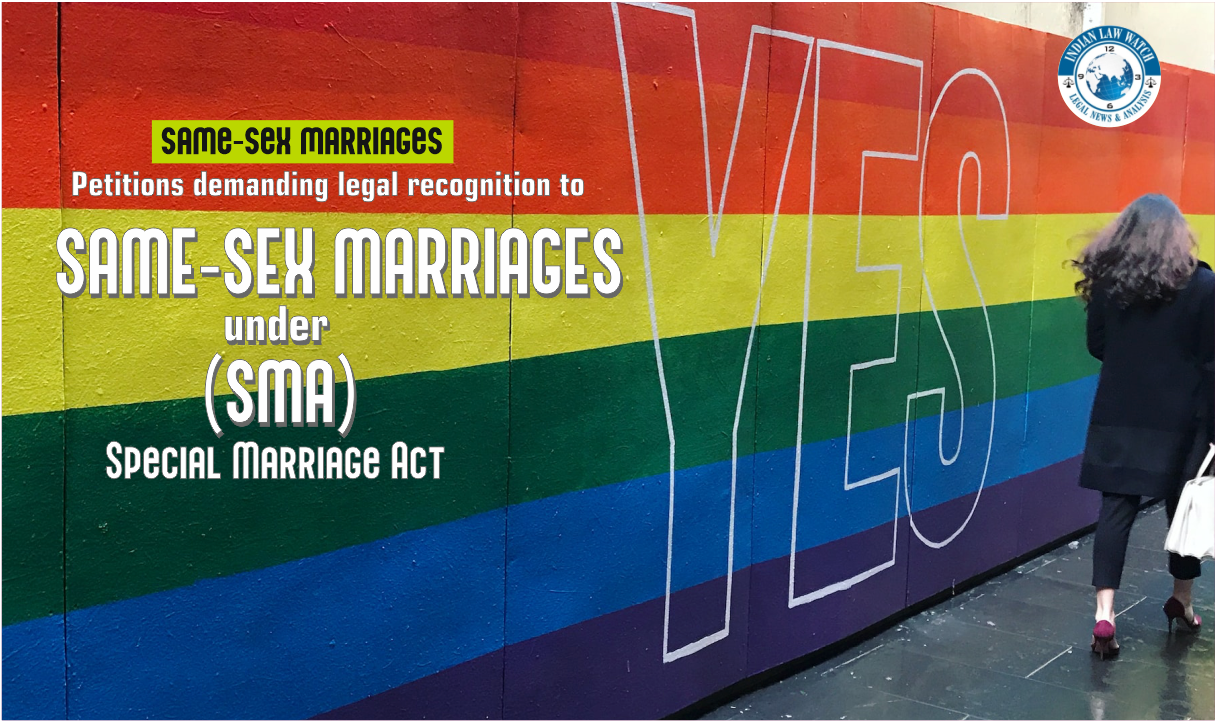

The Supreme Court on Wednesday agreed to consider transferring to itself petitions pending at different high courts, demanding legal recognition to same-sex marriages under the Special Marriage Act (SMA).
On Wednesday, the bench issued notices on a separate petition moved by another same-sex couple seeking legal recognition of their marriage in India

A bench headed by Chief Justice of India Dhananjaya Y Chandrachud issued notices to the Centre and the Delhi government on a transfer petition moved jointly by Delhi-based Kavita Arora and Ankita Khanna.


-
The two had moved the Delhi high court in 2020 with a plea to allow registration of marriages of same-sex couples under the Special Marriage Act and the Foreign Marriage Act. While their petition remained pending before the high court, the couple moved the top court seeking their plea transferred to the Supreme Court for an authoritative decision.
-
The transfer petition, argued through senior advocate Menaka Guruswamy, pointed out that the apex court has issued notices on a clutch of similar petitions on November 24, and therefore, it would be in the fitness of things to have the issue adjudicated at one place, by the highest court of the land. Through a separate application, the petitioners also requested for live-streaming of the proceedings in the matter.
-
On Wednesday, the bench, which also comprised justice PS Narasimha, further issued notices on a separate petition moved by another same-sex couple seeking legal recognition of their marriage in India. The petitioners in this case – an Indian national and a citizen of the United States of America – married and registered their marriage in the US in 2014 and now seek to register their marriage under the Foreign Marriage Act.
-
Four years after it decriminalised homosexuality between consenting adults, affirming sexual autonomy as a basic right of individuals, the Supreme Court had on November 24 sought the Union government’s response on a clutch of petitions demanding legal recognition to same-sex marriages under the Special Marriage Act and requested attorney general R Venkataramani to assist in the matter.
-
The CJI-led bench, on that day, gave the government four weeks to respond to the petitions that have also sought statutory recognition for members of the LGTBQ+ community to marry the person of their choice.
-
While admitting the matter last month, the bench took on record a statement made by the Centre recently before the Kerala high court that the ministry concerned was taking steps to get all similar cases transferred to the Supreme Court.
-
According to global think tank Council of Foreign Relations, same-sex marriages are legal in at least 30 countries, including the US, Australia, Canada and France.
-
In its affidavit filed before the Delhi high court in 2021 in a similar case, the Union government strongly opposed the validation of same-sex marital unions, underlining that a marriage in India can be recognised only if it is between a “biological man” and a “biological woman” capable of producing children.
-
The government said any interference by a court in the marital statute based on personal laws will create “havoc” in society and will run afoul of the intent of Parliament in framing the laws. It said a fundamental right cannot be an “untrammelled right” and cannot override other constitutional principles.
-
It had also opposed a plea for live-streaming of the proceedings through an affidavit in May 2021, contending that the matter is “neither of national importance nor has it affected the majority of population”, and that the purpose of the plea was to get an “unnecessary hype”. But the government had to withdraw this affidavit after the high court took umbrage at the language used in the affidavit.
-
In its 2018 judgment, the top court decriminalised homosexuality but did not get into civil rights issues. As a consequence, same-sex relationships are legal but civil rights such as marriage, inheritance or adoption, are not guaranteed to the lesbian, gay, bisexual, transgender, queer and intersex community.
Source: Hindustan Times





